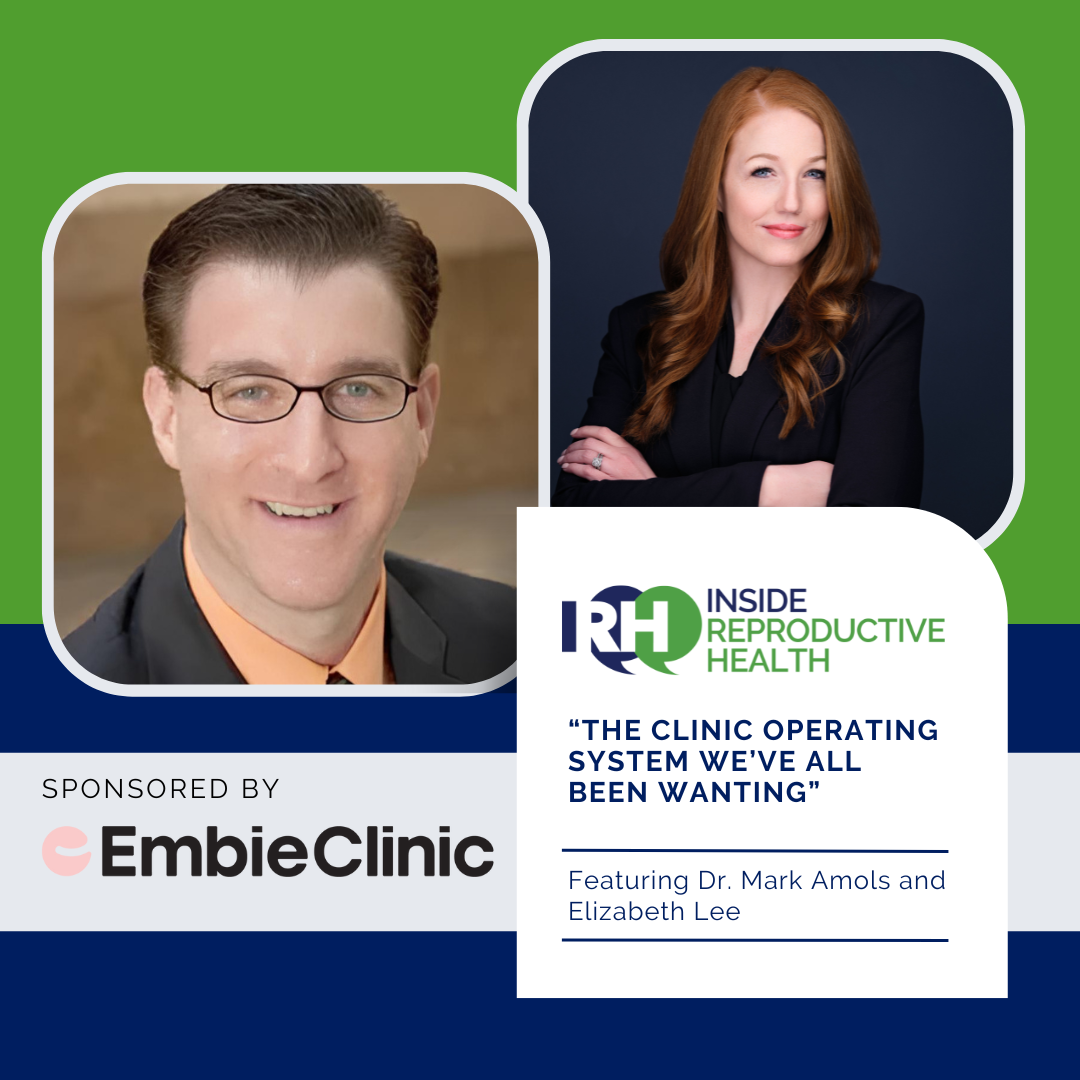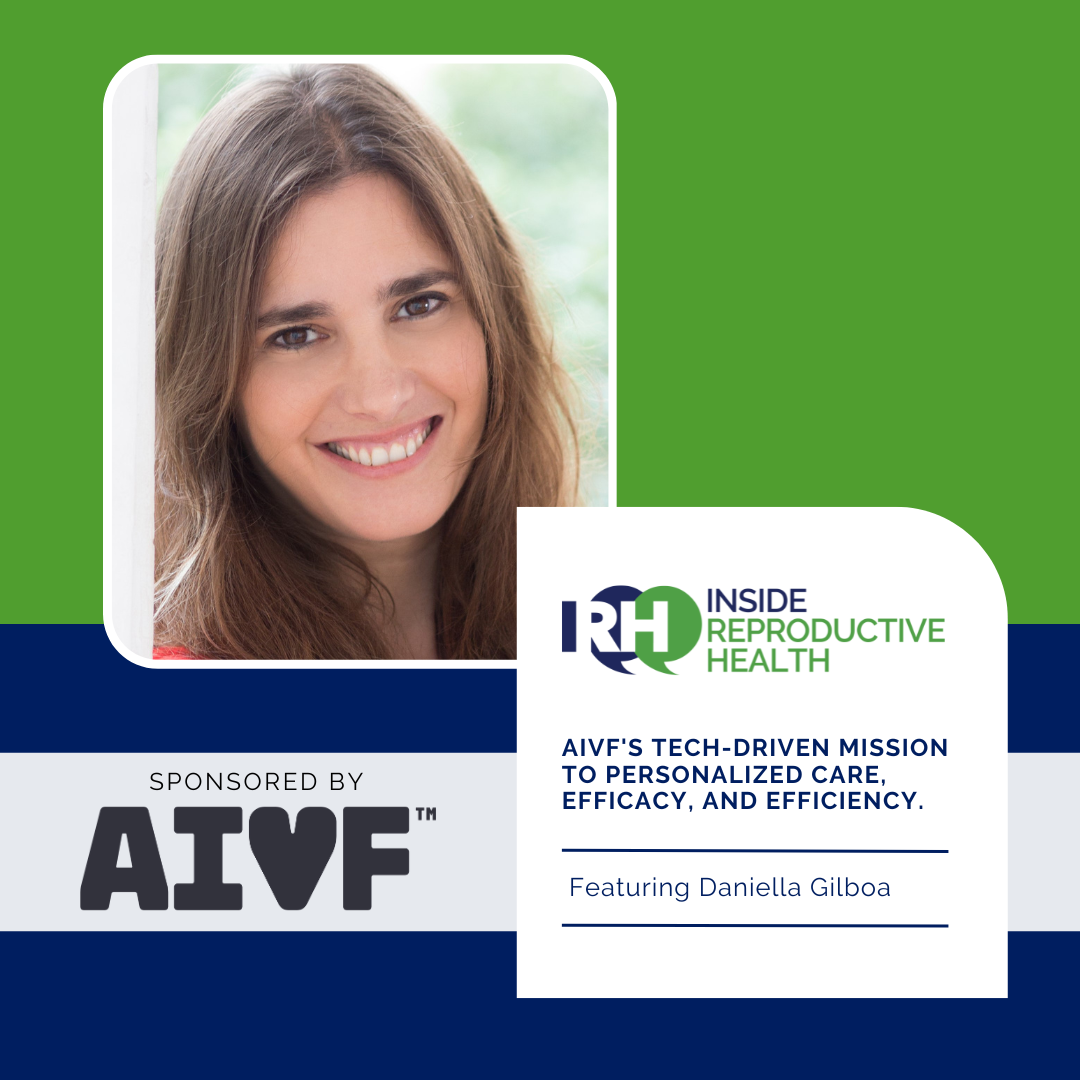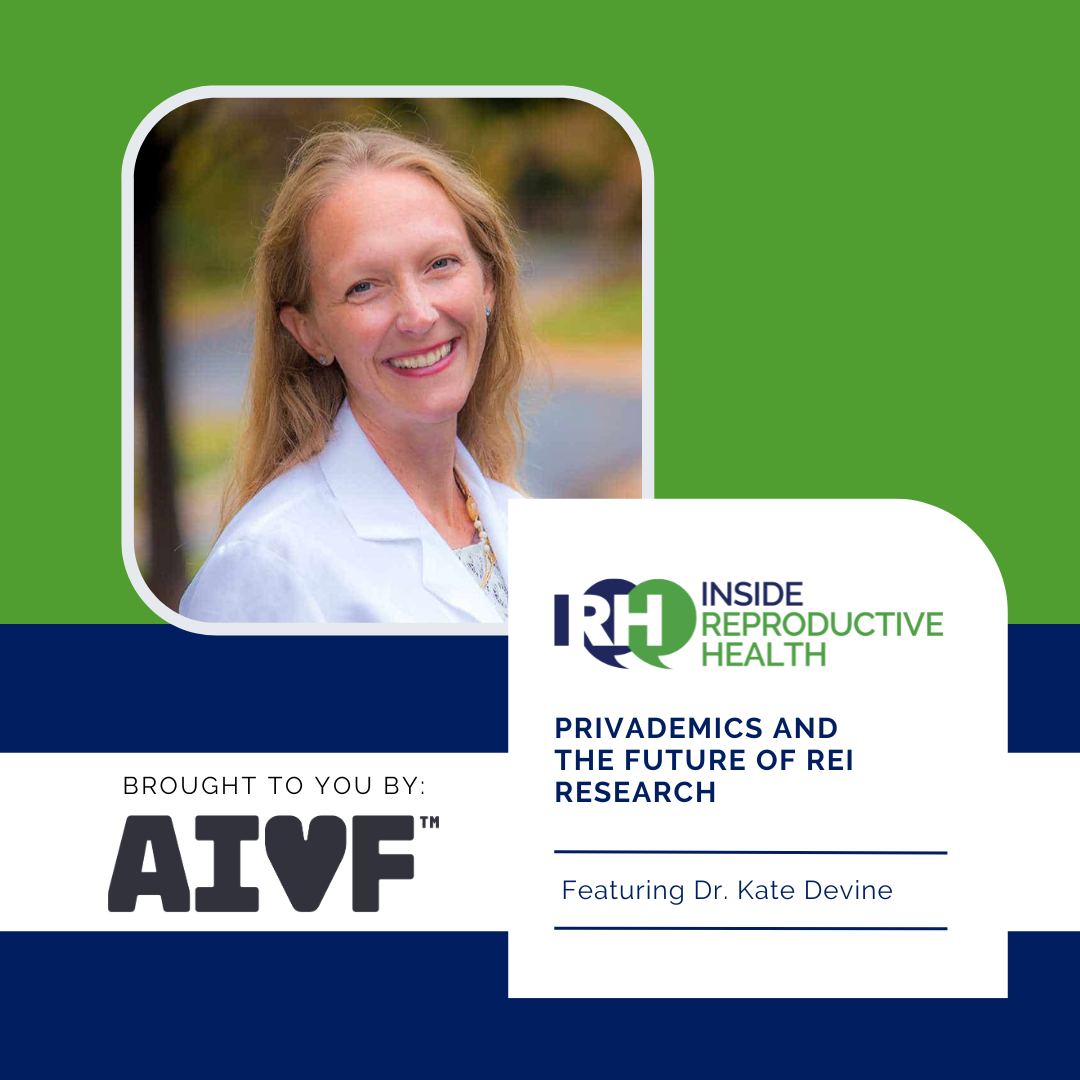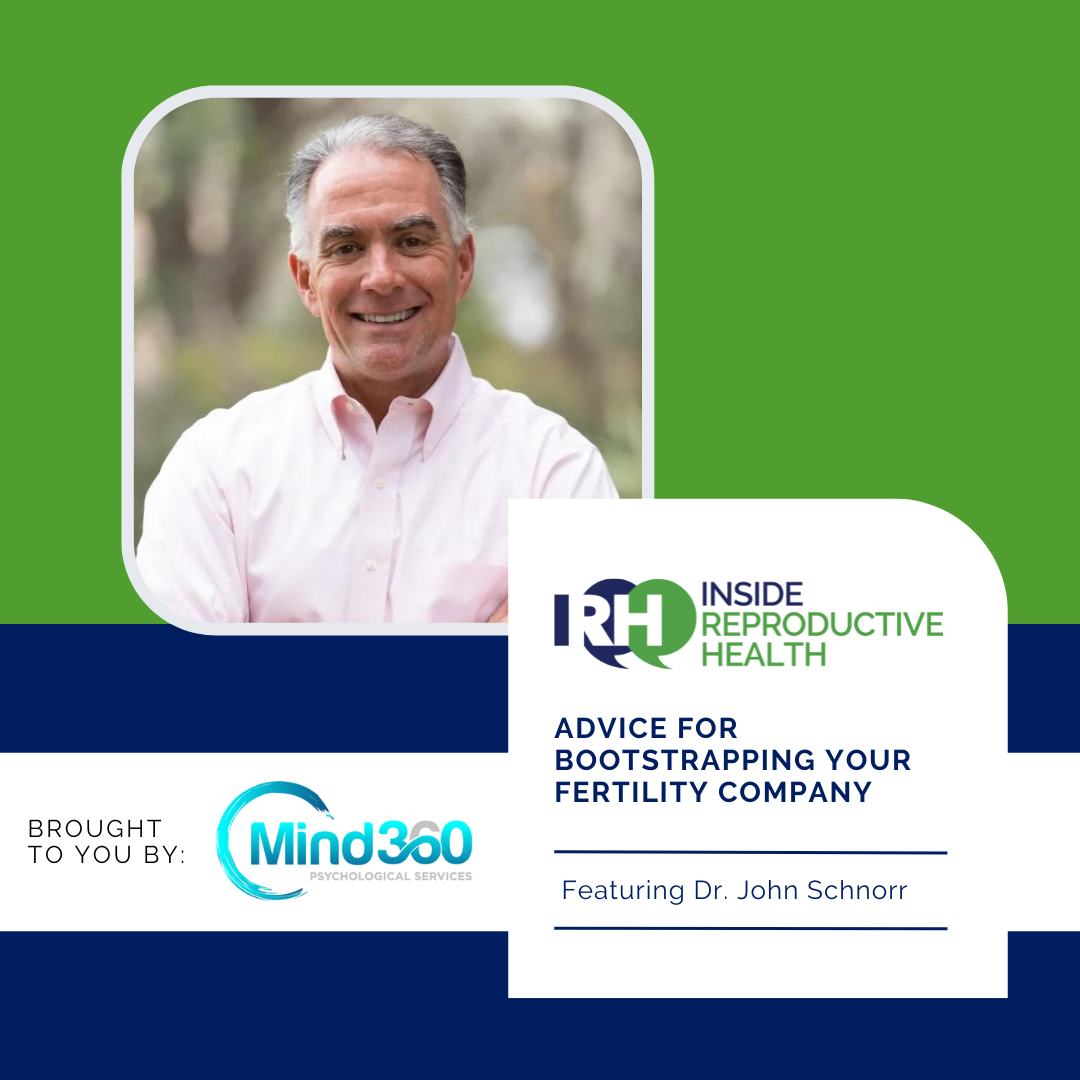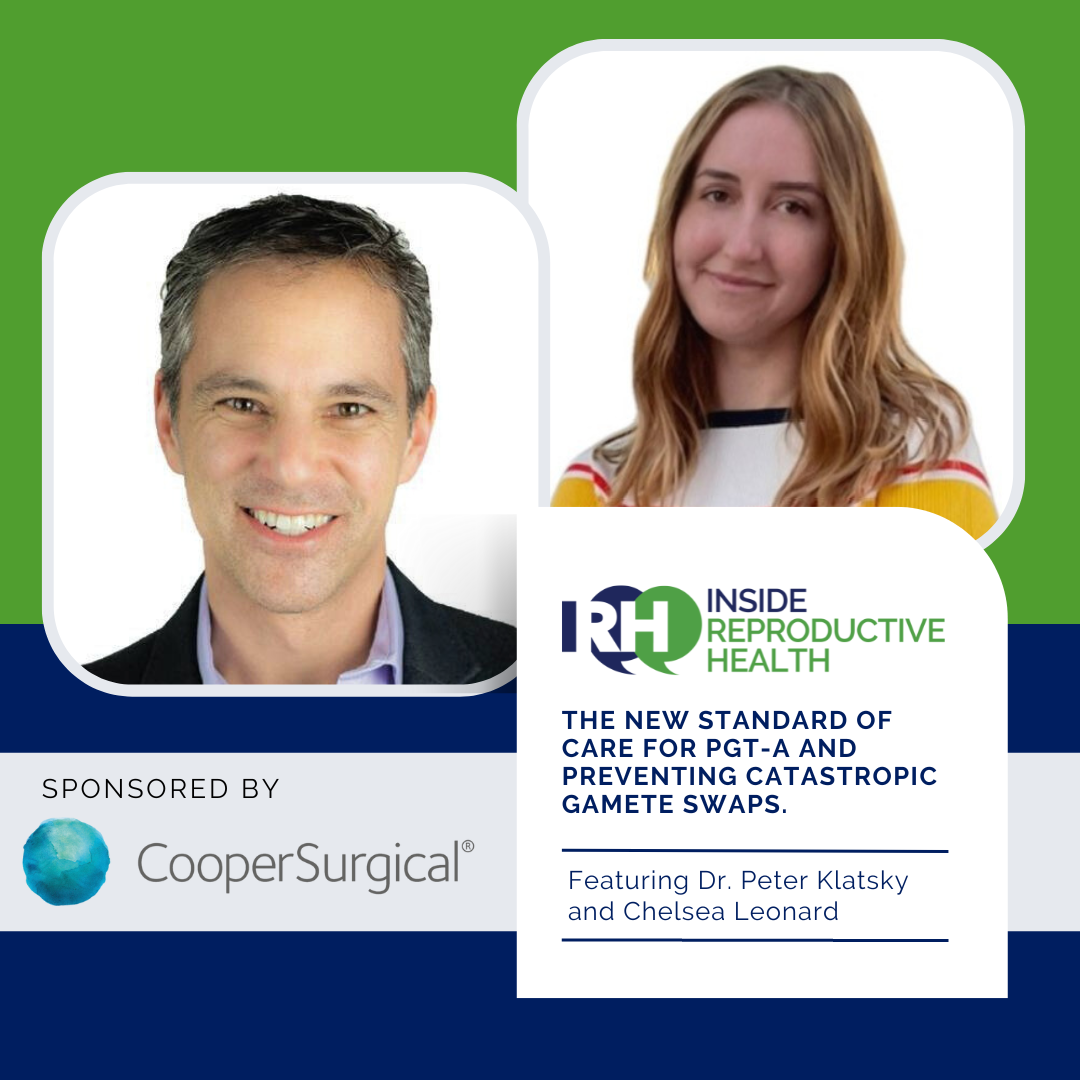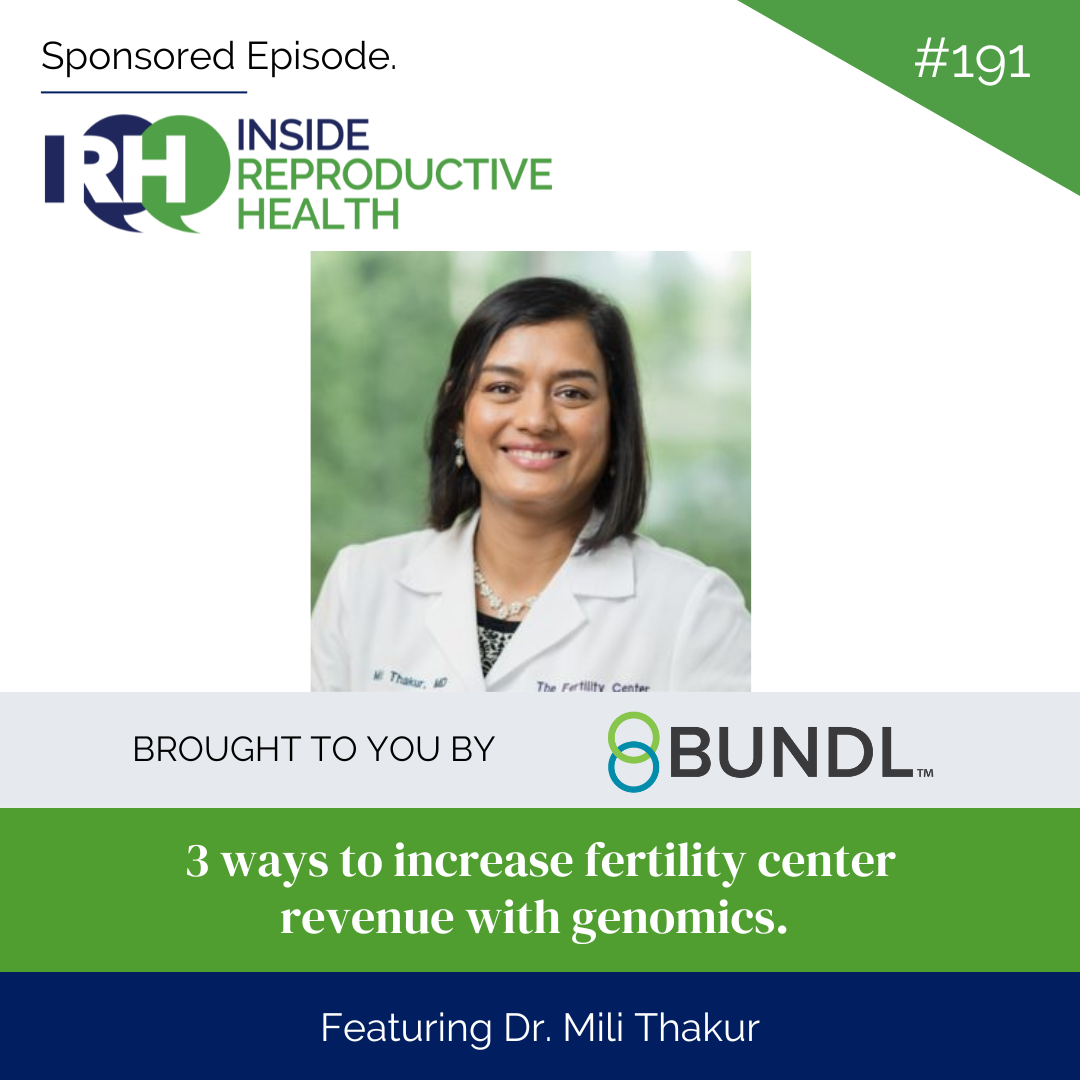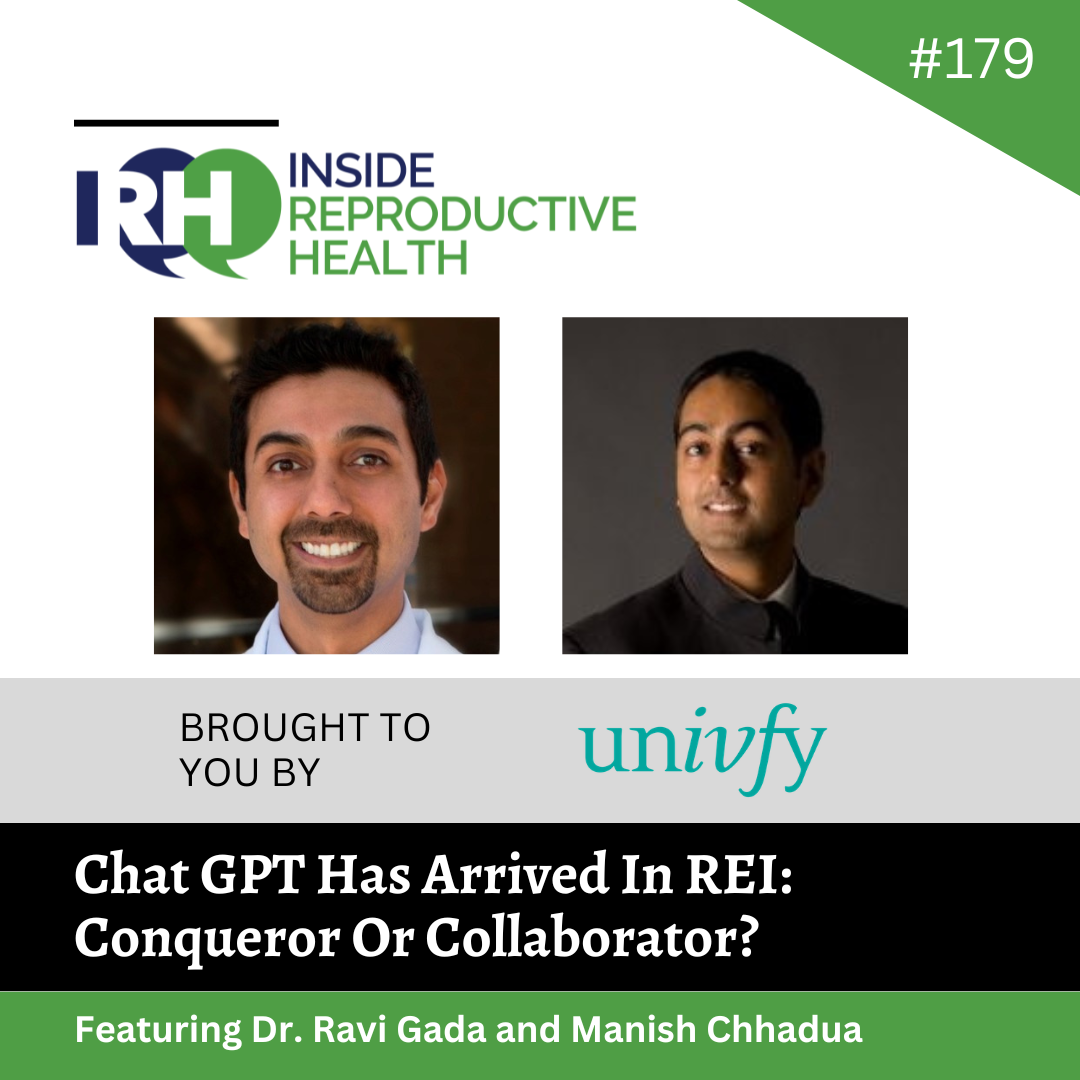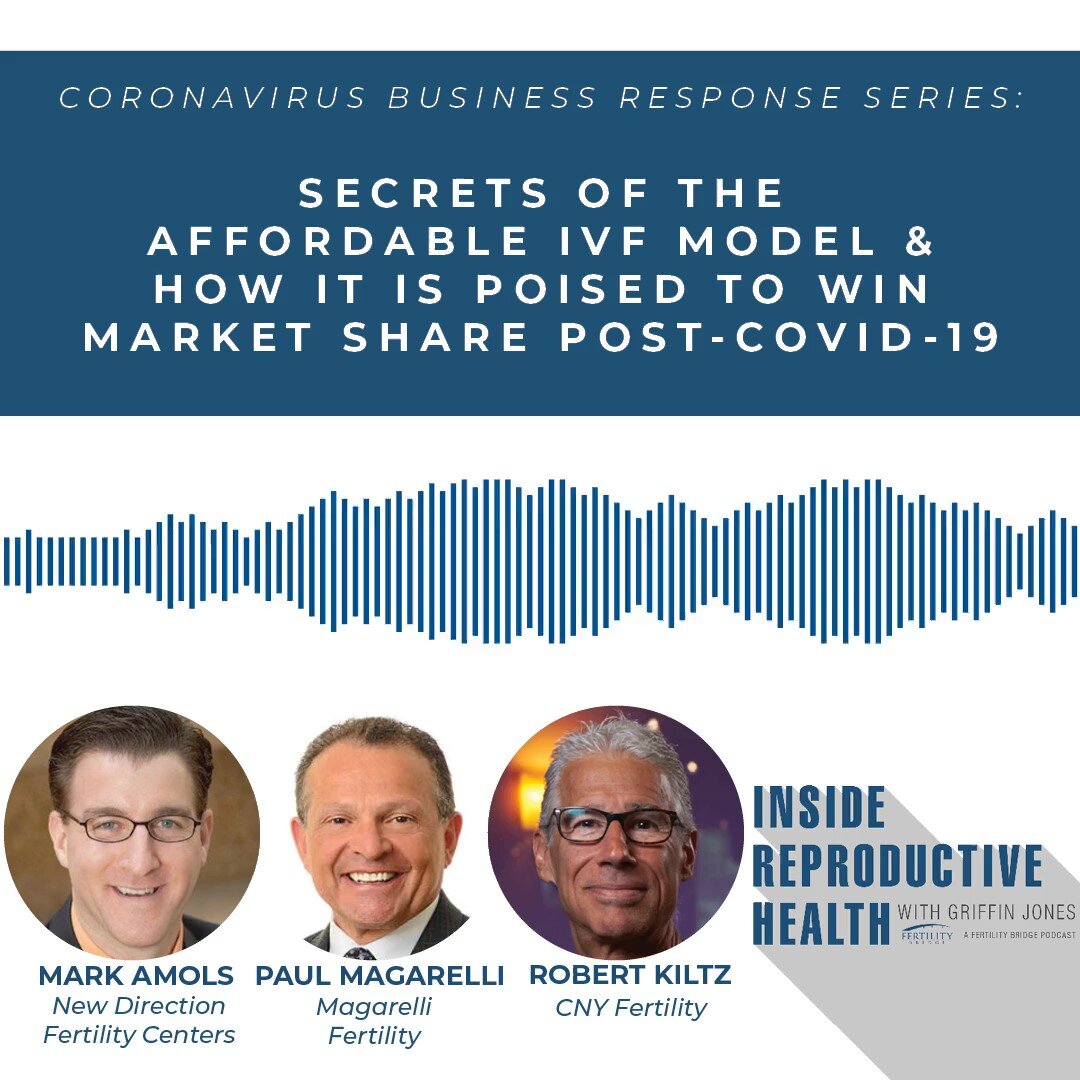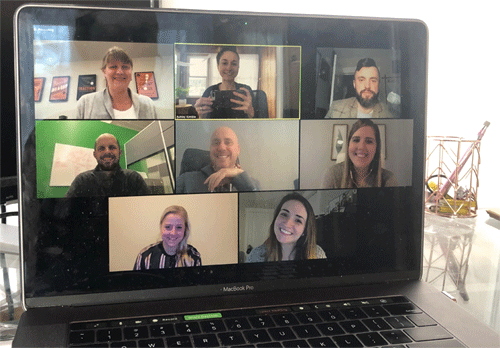Technological Innovation
From advanced laboratory techniques to new Electronic Medical Record software, technology is constantly changing.
Learn from a wide range of leaders on all things fertility technology.
After her own experience with fertility testing, Afton Vechery set out to make the testing process easier for millions of women across the country looking for a better understanding of their reproductive health. From day one, Modern Fertility aimed to provide quality, peer-reviewed information to empower young women to have the knowledge they need to make more informed decisions about her fertility.
On this episode of Inside Reproductive Health, Afton shares the Modern Fertility story. She shares how she brought her vision to life, including how she has been able to raise funds from Venture Capital companies. Griffin and Afton also discuss how Modern Fertility hopes to work with fertility clinics to improve the patient experience across the board.
As we head into a new (and hopefully better) year, we wanted to take a look back on all the wonderful, inspiring guests we had on Inside Reproductive Health throughout the year. We talked about affordable care, mentoring new staff in the clinic and the lab. We learned about independent clinics and how they thrive despite heavy network competition, networks and how they continue to provide personalized care even after becoming publicly-owned. We talked about reducing physician burnout and increasing patient communication. And so much more.
On this episode of Inside Reproductive Health, we highlighted your favorite episodes and compiled the best clips into one episode for you to enjoy as 2020 wraps up.
Venture Capital has been slowly making its way into the field over the last several years. But just what is it looking to improve?
On this episode of Inside Reproductive Health, Griffin talks to Dr. David Sable, a retired REI and current serial investor in biotechnology and other companies that aim to make the field more efficient and accessible by the patients we aim to treat. They discuss what it is going to take to scale to a million cycles in the US and 15 million around the world. From lessons from oncology to bottlenecks holding us back, Dr. Sable shares his biggest hopes for the fertility field and what entrepreneurs need to do to get it to the next level.
Dr. David Sable co-founded and served as director of the Institute for Reproductive Medicine and Science at Saint Barnabas Medical Center in New Jersey, was founder of Assisted Reproductive Medical Technologies, and was co-founder of Reprogenetics. In addition to serving as a reproductive endocrinologist, Dr. Sable also sought to help the field as a whole by finding investors to create new technology to increase the amount of people served by the field. Today, Dr. Sable is a life sciences portfolio manager, an adjunct at Columbia University, and serves as director, advisor, and board member for a wide range of biotech and advocacy organizations.
Learn more about Dr. David Sable at www.dbsable.com or find him on Twitter @dbsable.
Despite busy schedules taking care of patients and often running clinics themselves, it’s not uncommon to see doctors getting involved in ventures outside of their clinic’s four walls. From investing in pharmacies to serving as medical directors for new ART companies to starting software companies, REIs can be found doing a lot. No matter what the venture is, there is always the potential for creating a conflict of interest. So how do doctors draw the line? How are they able to ensure they are keeping the patient’s best interest at heart, and not just making decisions that are beneficial to the physician?
On this episode of Inside Reproductive Health, Griffin talks to Dr. Kevin Doody. Dr. Doody founded Care Fertility in Fort Worth, Texas with his wife, Kathy, in 1989. He is also co-creator of Effortless IVF, which is a new ART technology treatment that uses INVOcells. He is also the Chief Scientist of Global Fertility and Genetics.
Together, Griffin and Dr. Doody talk about entrepreneurship in the fertility field and then, we dig into conflicts of interest in the field: what is acceptable and what isn’t.
It’s not often that people relate the word “Affordable” with IVF. But the Affordable IVF Model is a thriving business model in a world full of expensive treatments. Despite questions about their revenue, rates, and processes, the model is growing and providing high-quality care to a vast amount of patients across the country. What can all clinics gain from this model, especially heading into a post-COVID-19 world?
On this special live episode of Inside Reproductive Health, Griffin spoke with three leading doctors whose clinics follow the Affordable IVF Model: Dr. Robert Kiltz of CNY Fertility, Dr. Paul Magarelli of Magarelli Fertility, and Dr. Mark Amols of New Direction Fertility Centers. Together, they talk about just how they make the Affordable IVF Model work, as well as answer common objections to their services.
“...this is an unprecedented time for everybody. We all have our expertise in different areas and our experience in different areas and now's the time to be talking about our approaches, what we're doing, sharing our ideas, and really, really working together to try to get through this and to put practices and patients in the best positions possible.”
It is business as unusual right now. Patients everywhere have been told that treatments have been put on hold and have been left in limbo. Thankfully, there has been a surge in interest in using digital technology to keep some semblance of normal for patients seeking treatment. Thanks to applications such as Zoom, clinics are able to conduct consults or relay testing results. And thanks to new innovations making consents available online, clinics are able to get patients ready for treatment, while remaining in good legal-standing.
On this special episode of Inside Reproductive Health, Griffin talks to Jeff Issner and Taylor Stein of EngagedMD, a company that has developed an application that not only provides digital consent forms, but also goes the extra mile in patient education. Dr. Steven Katz of REI Protect joins in the discussion, offering his perspective on risk mitigation and ensuring your practice reduces liability in any way it can during these unprecedented times.
This episode was recorded during a live webinar. In the coming weeks, we will continue to provide webinars with updated information on relevant topics. Learn more about our upcoming webinars at FertilityBridge.com.
Please note that all information included in this podcast is not legal advice and is simply to provide fertility clinics with information on the use of digital consents. Before using any advice in this podcast episode, please consult with your legal team.
Find Jeff Issner and Tayor Stein at Engaged MD by visiting Engaged-MD.com.Learn about Dr. Katz and his services at REI Protect at REIProtect.com.
Need help navigating marketing through this unprecedented time? Check out our COVID-19 Toolkit from Fertility Bridge.
The outbreak of COVID-19 is changing the world, in both the present and in the future. In these uncertain times, hospitals and other healthcare facilities are looking to implement new technologies to continue to provide services, while limiting their face-to-face interaction. But implementing HIPAA-approved telehealth applications in a short amount of time can prove to be a challenge. Thankfully, the federal government is lifting rules and reevaluating their regulations to allow healthcare companies to use other tools to reach their patients in these difficult times. On this episode of Inside Reproductive Health, Griffin talks to Jill Gordon and Sarah Swank, lawyers in the healthcare division of Nixon Peabody. They navigate the changes to HIPAA regulations in the midst of the COVID-19 crisis and how clinics can appropriately implement telehealth to help their patients through their journeys without seeing them in office.
The Coronavirus outbreak in the US has many businesses scrambling to maintain operations while keeping employees and customers safe. Having employees work remotely can be an effective solution for some businesses. But for fertility practices - and healthcare providers in general - a transition to working remotely is fraught with challenges: hard copy filing systems, outdated technology and HIPAA compliance to name a few.
Entering the fertility space outside of owning a clinic is challenging. Entering the space as a tech company, well, that’s a whole other story. On this episode of Inside Reproductive Health, Griffin spoke with Jeff Issner and Taylor Stein, co-founders of EngagedMD. Together, they developed software that helps to educate patients and provide informed consent in clinics across the country. They share the story of how they got started in the fertility space, from idea to execution, without any commercial debt.
Jeff and Taylor also talk about how they got doctors and clinics on board before their software was even fully developed. Plus, they discuss the ever-challenging hiring process and what they do to make sure they are getting the best people on board.
Embryo disposition is a sensitive topic for patients even long after they’ve left a clinic. However, there can also be a burden placed on clinics when it comes to making space and cryopreserving embryo, eggs, or sperm for an extended period of time. On this episode of Inside Reproductive Health, we learn more about how one company is working to alleviate the burden for both the patient and the clinic. Listen to Griffin talk to Andrew Gairani of Embryo Options, a web-based application that provides patients with disposition education and resources, along with other features that make storage easier for everyone.
Are you struggling to retain your lab employees? You are not alone. Retention is a commonly-discussed issue across the field of reproductive medicine, but no one is hurting more than the lab. On this episode of Inside Reproductive Health, Griffin talks to Bill Venier, IVF Lab Director at San Diego Fertility Center. Together, they discuss what SDFC is doing to keep their employees in for the long haul, as well as some ideas to ease the training process of new reproductive biologists.
Donor gametes are a crucial pillar of the field of fertility, but what happens behind the scenes? On this episode of Inside Reproductive Health, Griffin talks to Dennis Marchesi, Director of Laboratory Operations at Xytex, a sperm bank located in Georgia. Together, they talk about the nuances of different labs working together, how Xytex is dealing with cultural changes that are affecting anonymity of donors, and the impact mail-away testing kits are having on the lab.
Millennial REIs are finishing their fellowship programs and entering the workforce. With this passing of the torch, change is bound to happen, but what kind of changes can we expect? On this episode of Inside Reproductive Health, Griffin talks to Dr. Pietro Bortoletto, an REI Fellow at Weill Cornell Center for Reproductive Medicine. Dr. Bortoletto shares his thoughts on the future of REI clinics, both privately-owned and academic, and how the millennial doctors can make a positive impact on their patients and the field as a whole.
“...I think fighting consolidation is not going to be a winning strategy in the long run. That being said, I think there's still lots of room for creative, innovative, entrepreneurial operators whether they’re at the clinic level or the supplier level and... as the field gets bigger and gets more interesting from a public capital markets perspective, there's going to be a lot more opportunity for funding those exciting innovations.”
Consolidation, IPO, publicly-owned...all words that weren’t a part of the fertility world vocabulary 10 years ago. Now, they are becoming more and more common, which can be both exciting and nerve-wracking to entrepreneurs in the field. On this episode of Inside Reproductive Health, Griffin Jones, founder of Fertility Bridge, talks to David Wolf, President and CEO of Hamilton Thorne. They discuss the implications of consolidation coming into the fertility world as well as the pros and cons of both publicly- and privately-owned clinics and suppliers.
Click here to learn more about David Wolf and Hamilton Thorne.
To get started on a marketing plan for your company, complete the Goal and Competitive Diagnostic at FertilityBridge.com.
Building and growing an IVF practice can have numerous benefits for both the owners and the patients they serve. But growth can sometimes lead to loss of patient-focused care. On this episode, Griffin Jones, CEO of Fertility Bridge and host of Inside Reproductive Health, talks to Dr. Alan Copperman, Co-Founder and Medical Director of RMA of New York, one of the nation’s largest IVF centers. Together, they discuss how RMA of New York was able to retain their patient-focused culture while exponentially growing the practice. Their approach to delegating important tasks, understanding the “new” patient, and finding the right, compassionate employees has greatly contributed to their success today.
To learn more about Dr. Copperman and Reproductive Medicine Associates of New York, visit their website at https://www.rmany.com/.
Visit fertilitybridge.com to learn more about what Griffin and his team can do for your fertility clinic and take the first step in building your marketing system with the Goal and Competitive Diagnostic.
Preimplantation genetic testing has opened up a world of helping families have successful pregnancies. But when does the testing and selection of embryos go too far? In this episode of Inside Reproductive Health, Griffin talks to Dr. Jamie Metzl, author of Hacking Darwin: Genetic Engineering and the Future of Humanity. They discuss the implications of advanced technologies such as the future of embryo screening and gene-editing. More importantly, Dr. Metzl discusses the significance of understanding the coming technologies and how those in the fertility field can help prepare their patients and the rest of the world for these changes.
- Partnership and Recruitment 49
- Physician Leadership 1
- Practice Ownership 1
- Training & Education 8
- Strategy 66
- Fertility Practice Management 104
- CEO and C Suite 8
- Fertility Patient Relations 99
- Technological Innovation 44
- Fertility Genetics 1
- IVF Lab 21
- International Care 18
- Private Equity and Venture Capital 33
- Technology 8
- Compliance 32
- Fertility Marketing 87
- Nursing Management 10
- COVID-19 15
Subscribe to get the latest updates and episodes delivered to your inbox.



